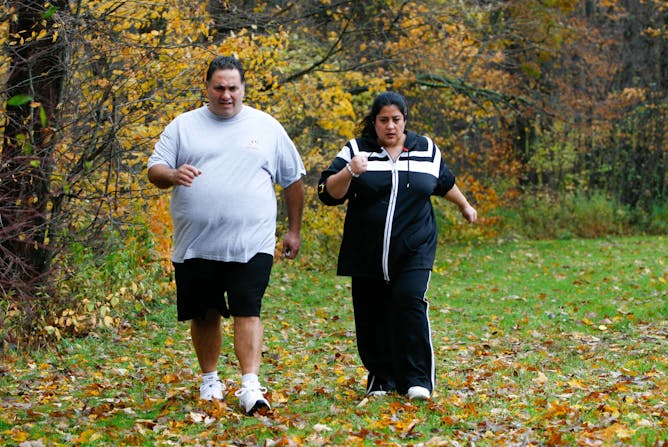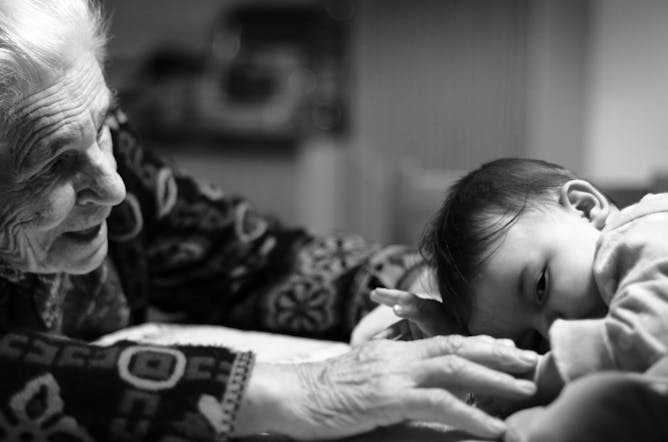|
A year ago tomorrow, Ellen Maud Bennett died after being diagnosed with cancer only a few weeks earlier. She wasn’t famous. But one of her last things she did before dying was to use her obituary to make a serious point. After years of seeking help for her ailments, she was repeatedly told her health problems were caused by her weight. Today in The Conversation Canada, Patty Thille of the University of Manitoba tells Ellen’s story – how the health care system’s anti-fat bias led countless medical officials to overlook that she had cancer.
When the stock market goes up, is that a good thing for the environment? Richard Kool of Royal Roads University explores the connection.
As the U.S. and China are on the brink of another international tariff war, Klaus Meyer of Western University and Daniel Shapiro of Simon Fraser University look at the growing impact of cities when it comes to the trade of services, rather than goods.
And finally…we have a pair of great Mother’s Day-themed stories: Sarita Srivastava of Queen’s University looks at the origins of Mother’s Day and suggests it’s time we returned to the real intention of the holiday; Patrick Bergeron of Bishop’s University looks at the historic impact that grandmothers have had on the fertility rates of their offspring.
Regards,
|

Science tells us that body weight is not just about lifestyle, and yet health-care providers often assume that people with obesity are lazy and lack willpower, and that fatness is the only relevant health issue.
(Rudd Center)
Patty Thille, University of Manitoba
One year ago, Ellen Maud Bennet asked women of size to make her death from cancer matter -- by advocating for their own health.
|

All is not well in the world just because stock markets are up – particularly when it comes to climate change.
THE CANADIAN PRESS/Frank Gunn
Richard Kool, Royal Roads University
Don't let stock markets reports convince you that when the markets are up, all is well in the world. When the market is up, carbon dioxide in the atmosphere is up, and the global environment is down.
|

Fireworks explode over the Toronto skyline, during the opening ceremonies for the Pan Am Games in July 2015. Toronto is among several global cities that are driving trade in services among countries.
THE CANADIAN PRESS/AP-Rebecca Blackwell
Klaus Meyer, Western University; Daniel Shapiro, Simon Fraser University
Cities have not been central to public policy discussions on trade growth and diversification that are typically centred on trade pacts between countries. But cities are now driving a lot of trade.
|

We have such romantic notions of being finally appreciated on Mother’s Day that some mothers feel disappointed. Perhaps we should shift the idea of what Mother’s Day can be.
Bruno Nascimento/Unsplash
Sarita Srivastava, Queen's University, Ontario
Mother's Day was originally a call for peace and justice. Some are advocating it be returned to a day of action and reflection.
|

The proximity of a maternal grandmother could have an effect on family size.
Paolo Bendandi
Patrick Bergeron, Bishop's University
The geographical proximity of grandmothers may have an effect on the number of children their daughters produce.
|

Les femmes sans enfant se perçoivent souvent comme incomplètes et vivent un sentiment d'échec. La Fête des mères vient le leur rappeler cruellement.
Shutterstock
Laurence Charton, Institut national de la recherche scientifique (INRS)
Les femmes sans enfant se perçoivent souvent comme incomplètes et vivent un sentiment d'échec. La Fête des mères apparaît comme une journée qui exalte la fécondité mais aussi qui exclut des femmes.
|
Culture + Society
|
-
Dave Tell, University of Kansas
Scholars continue to debate what, exactly, happened to Emmett Till the morning of his murder. But that hasn't stopped a poor Mississippi community from trying to profit off one version of the story.
|
|
Environment + Energy
|
-
Christine Adams-Hosking, The University of Queensland
It's hard to say exactly how many koalas are in the wild, but there's no doubt they're in serious trouble.
|
|
Health + Medicine
|
-
Louise A Brown Nicholls, University of Strathclyde
Older people may be vulnerable to the physiological effects of anger, but not sadness.
|
|